In order to implement the spirit of the General Secretary's speech on telling Chinese stories well, spreading the voice of China well, showing a true, three-dimensional and comprehensive China, and strengthening the construction of China's international communication capacity, under the instruction of the Central Propaganda Department, Phoenix Satellite TV has launched a daily documentary program The Great Era since New Year's Day 2022, using Phoenix's global broadcasting platform. It creates an important channel for Chinese culture to go global.
The documentary film Bobby's Factory (also known as China-Africa Factory), directed by Professor Zhang Yong, a researcher of the "Hundred Talents Program" of our college, was broadcast on the documentary program The Great Era of the Chinese Channel of Phoenix Satellite TV at 16:30 from June 6 to June 8, 2023, with a total of 3 episodes and each episode of 25 minutes.
From June 6 to 8
The Great Era Bobby's Factory
Three consecutive episodes are played
Broadcast platform: Phoenix Satellite TV Chinese Channel
Premiere: Monday through Sunday at 16:30
Replay: Monday to Sunday 02:00 06:00
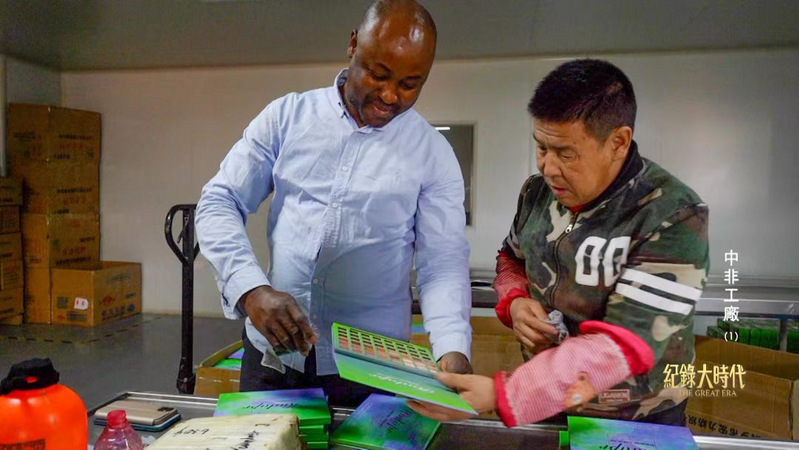
Synopsis
Bobby's Factory (also known as China-Africa Factory) is the first documentary in China to take an in-depth look at the people-to-people exchanges between China and Africa. The film was filmed from September 2018 to August 2021, which lasted for three years, and recorded the changes in the relationship between Nigerian businessman Bobi and Chinese workers before and after the outbreak of the novel coronavirus. Bobby came to China from far away Africa, and after more than a decade of hard work, he and his wife set up a cosmetics factory in China's coastal province of Zhejiang to export to West Africa. However, the factory has not yet entered the right track, but unfortunately ushered in the outbreak of the new coronavirus epidemic. The China-Africa supply chain has been disrupted, the foreign trade industry has been in trouble, and the contradiction of the low-end labor-intensive processing industry that was originally on the decline has been further stimulated. African bosses, Chinese employees, people of different colors tasted the pains brought by the changes of The Times. As a foreigner, whether Bobby can make the factory survive? How will he coordinate inside and outside the factory? What changes will take place in the relationship between people in this special period?
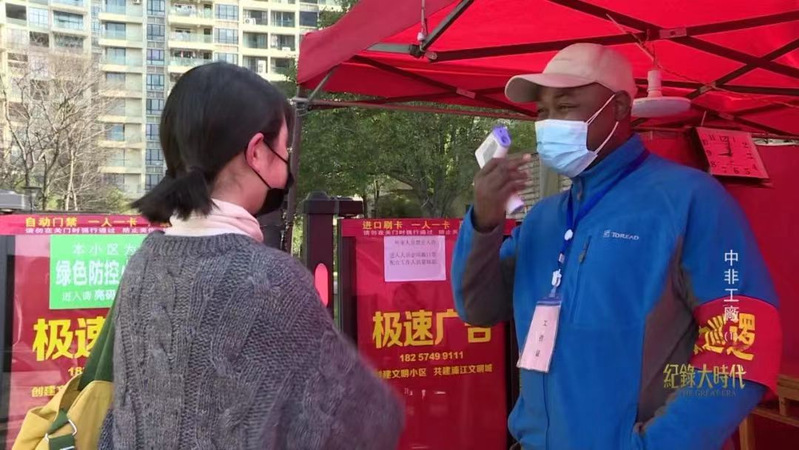
The TV version is divided into three episodes. The first episode is China-Africa Trade under the Epidemic, which tells the different operating conditions of the factory before and after the COVID-19 epidemic, and how he overcame difficulties in the sluggish foreign trade industry to make the factory survive. The second episode is African Boss and Chinese employees, mainly telling how the Bobby couple deal with the relationship with Chinese employees in the absence of help, how to solve the management problems of the factory, and promote the development of the factory. The third episode is Home is where the heart is, telling that both Chinese and Africans pay attention to their families and strive for a better life for their families, which is the focus of people-to-people communication.
Process of Creation
Before the epidemic, foreign documentaries about Africans working and living in China included China Remix and Guangzhou Dream Factory. These works focus on the fact that Africans and Chinese people are prone to conflicts and frictions, as well as the difficulties in obtaining visas and getting medical treatment. They generally convey the stereotype that Chinese people are not friendly to Africans and Africans do not trust Chinese people, while the reality is far more diverse. During the pandemic, videos of Africans in China that had been tampered with the time and place were spread overseas, and Western media began to report on them extensively, resulting in the emergence of real scenes and films.
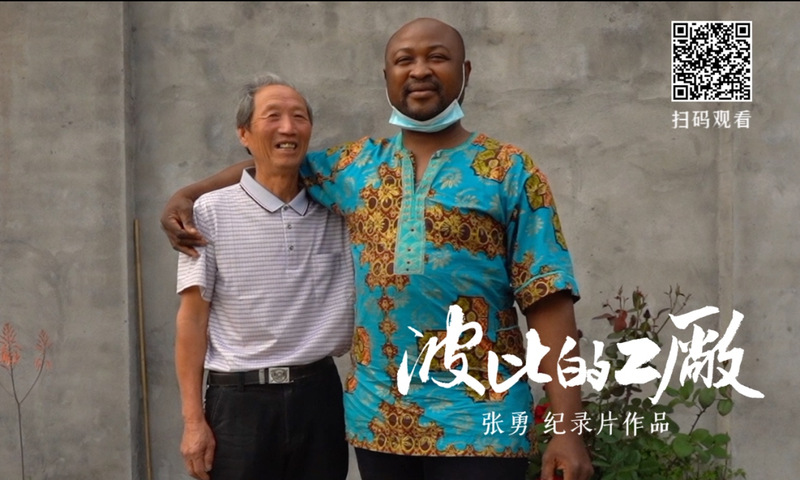
Unlike documentaries about China and Africa produced by domestic mainstream media, Bobby's Factory adheres to the position of a scholar director. The film does not avoid the conflict and differences between Chinese and African cultural concepts, but cleverly constructs cross-cultural interest through such differences.
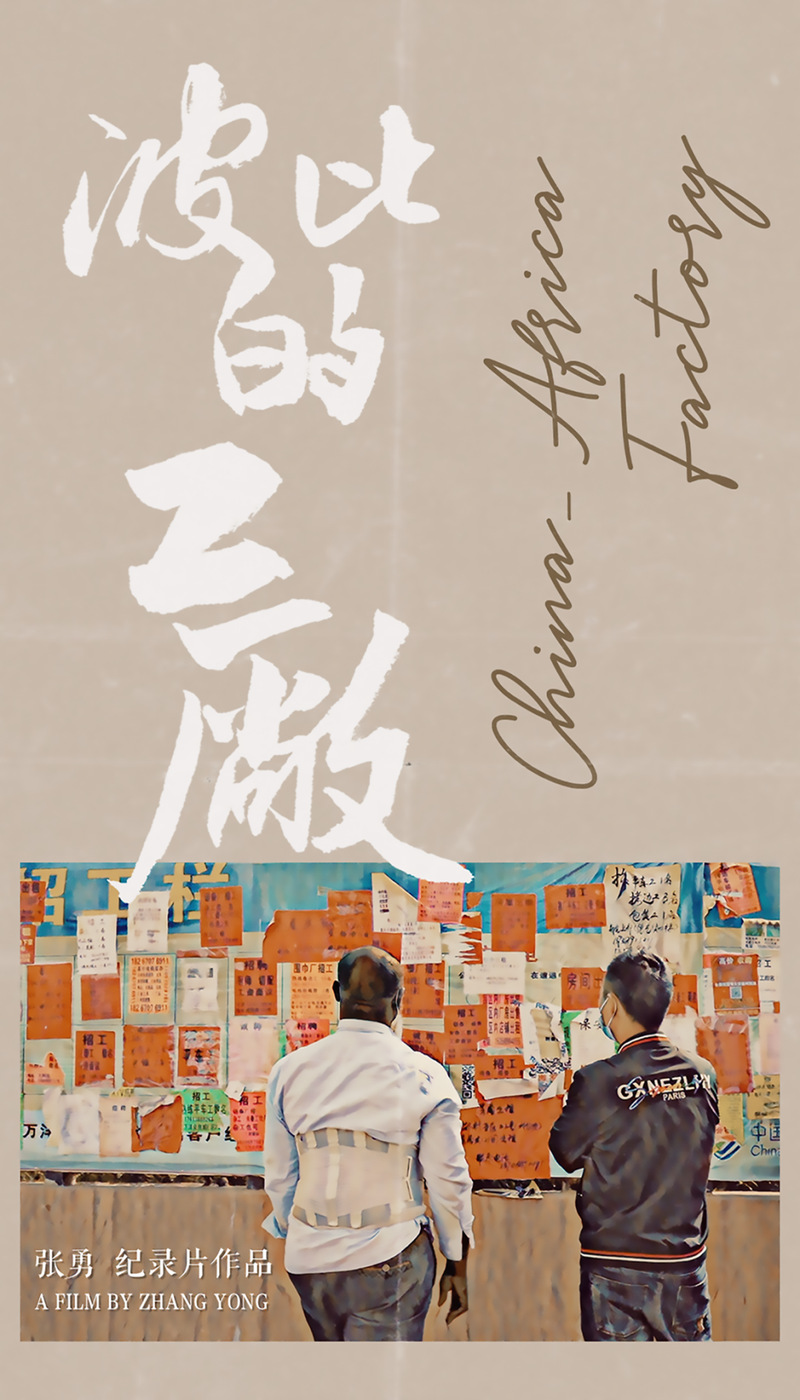
Ideas of the Creator Zhang Yong (the director of the film)
Since 2015, I have been photographing the stories of Africans in China. In addition to recording the cross-cultural experiences of Africans, I pay more attention to telling the stories of the exchanges between the bottom class of China and Africans. Since 2018, we have been following an African cosmetics foreign trade factory near Yiwu, to tell the story of the relationship between an African boss and a Chinese employee in a relatively closed space. Through the story of this multinational factory, I hope to let the audience see the difficulties, suffering, hope and rebirth experienced by ordinary Chinese and Africans in China outside the Wuhan field in this era of change, and thus reflect the most authentic appearance of the Chinese and African people in the deep exchanges.
Influence of the Film
In order to better spread internationally, Zhang Yong's team translated and produced the English version with the support of Zhejiang Provincial Radio and Television Bureau. It will be broadcast ON Nigerian National Television, ST Sino Drama, StarTimes ON and Amart Entertainment Ltd and other platforms around Chinese New Year this year, covering more than 30 countries in Africa. Boppy's Factory has won the favor of local media and audiences in Africa, and has been broadcast on Nigerian National Television for three consecutive weeks since January 25, becoming the first film and television production in our country to be broadcast in multiple rounds on national television.
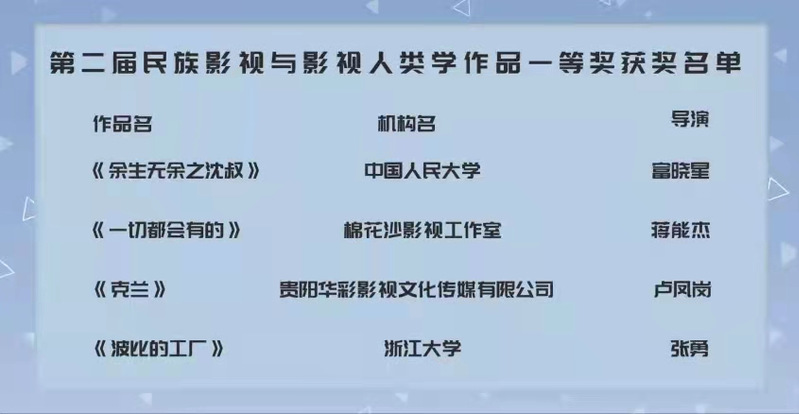
the list of first prize of Folk Film & TV and Visual Anthropology Works
In addition to spreading in Africa, the documentary Bobby's Factory has been permanently collected by the National Library of China, Yale University Library, University of College London and other famous institutions at home and abroad. It won the first prize of the second Folk Film & TV and Visual Anthropology Works, the Chinese University Film and Television Society Academy Award and other honors. With the support of local partners in Yiwu, the film was also broadcast to European and American audiences through Yellow River TV Station, becoming another characteristic result of the combination of international communication work and film-television theory and practice. At the same time, the film has landed Tencent video online broadcast, and will soon be online Zhejiang TV Zhijiang recording channel.

